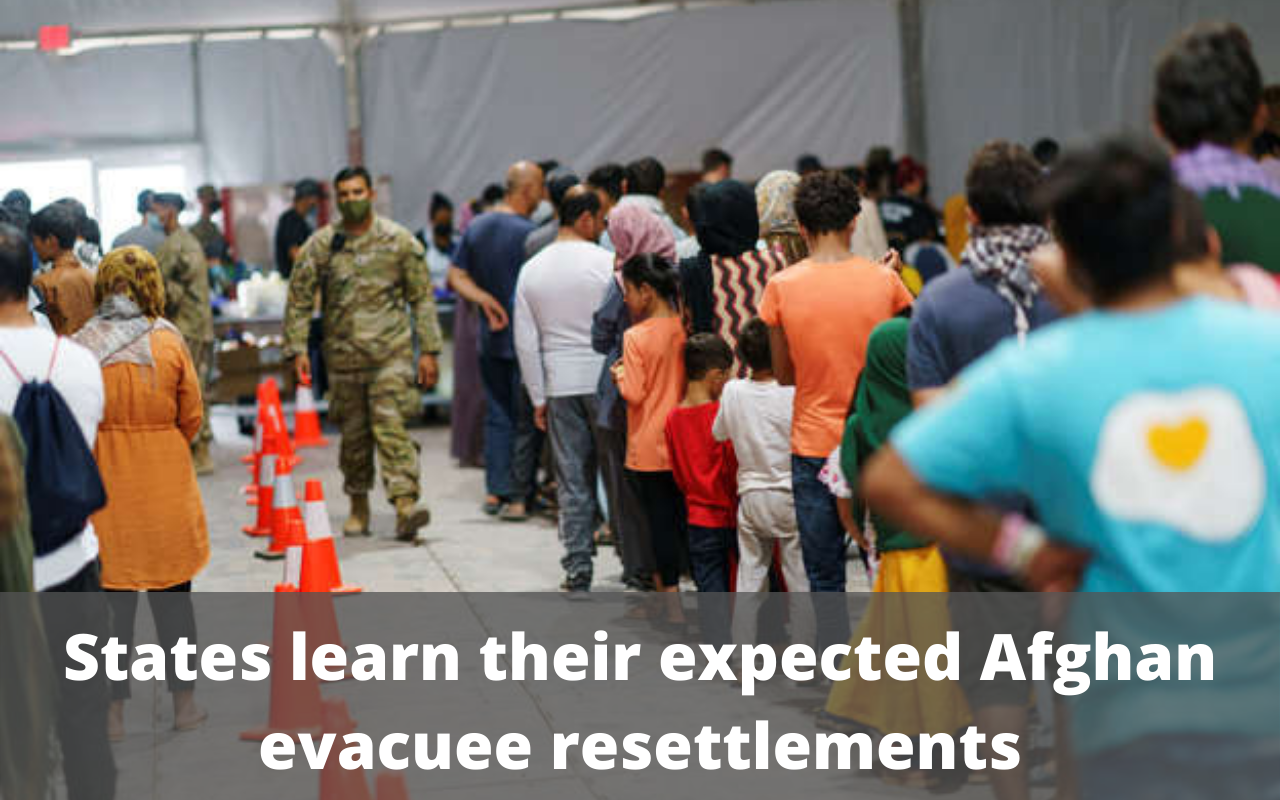The Biden administration has started informing governors and state refugee coordinators nationwide on the number of Afghan evacuees who will come and will resettle in their states from among the first group of nearly 37,000 arrivals.
California is expected to receive more arrivals compared to other states with over 5,200 evacuees, according to State Department data for the Afghan Placement and Assistance program gathered by The Associated Press.
According to U.S. officials, Alabama and Mississippi are expected to welcome 10 people each. Meanwhile, the states of Hawaii, South Dakota, West Virginia, Wyoming and the District of Columbia are not yet slated to receive any evacuees from the first batch who fled the tumultuous withdrawal of the U.S. from Afghanistan last month.
The administration requested funds from the Congress to aid in the resettling program for 65,000 Afghans in the United States by the end of the month and 95,000 by September 2022. President Joe Biden has assigned Jack Markell, the former governor of his home state Delaware, to serve as a temporary head on this Afghan evacuees resettling program in the country.
According to the data, states who have had a large number of resettling Afghans for the last two decades, like California, Maryland, Texas, and Virginia, are again accepting a superfluous number of evacuees.
Oklahoma, which had a relatively low number of Afghan evacuees over the two-decade war, is set to resettle 1,800 individuals.
According to two U.S. officials, several evacuees have preferred to be resettled in those states because of family and friends who are already residing there. These states also have a large presence and capacity of resettlement agencies.
Read More: Ohio Mayor Calls for School Board Resignation Over ‘inappropriate’ Resource Material
The officials added that the advice of the local affiliates of the nine national resettlement agencies working with the U.S. government will be the basis of the State Department’s resettlement of evacuees.
The Afghan evacuees have been advised that other parts of the U.S., especially those with good employment opportunities and lower cost of housing, could be great cities to start their new lives in.
The Afghan evacuees undergo a security vetting process coordinated by the Department of Homeland Security before being admitted. Each evacuee entering the U.S. also goes through health screening. COVID-19 vaccination is required for evacuees aged 12 and older as a condition for their humanitarian parolee status after entering the U.S..
However, unexpected complications still arise.
Measles cases among many Afghan evacuees who arrived in the country weeks before caused the cancellation of other US-bound flights for the Afghans who stayed temporarily in the third-country processing sites.
If the Congress doesn’t act to address their status as refugees in the U.S., these Afghan evacuees may experience a difficult road ahead.
Currently, these Afghan evacuees are not qualified for food stamps, cash assistance through the Temporary Assistance for Needy Families program for low income families, Medicaid or other traditional refugee services provided and funded through the Department of Health and Human Services.
Each Afghan evacuee is currently set to receive $1,225 as aid for rent, furniture and food plus a small amount of pocket money. Biden has called on Congress to start acting so that the recent arrivals will enjoy the same benefits as refugees.
Read More:United States Calls For Dialogue Despite Condemning The Launch of North Korea

Leave a Reply